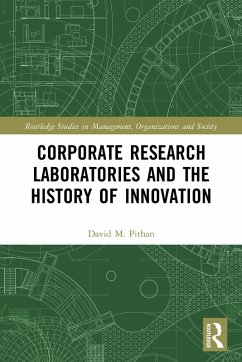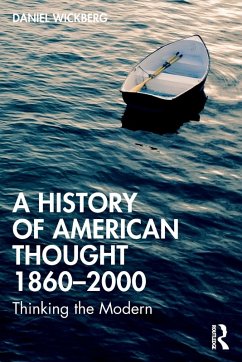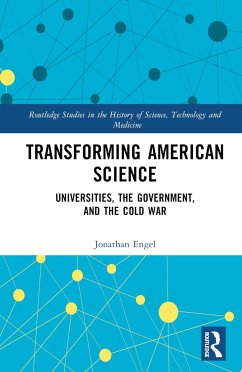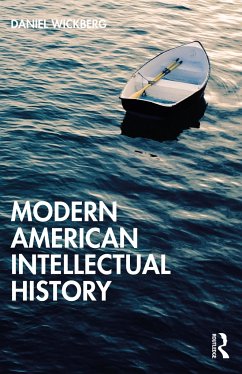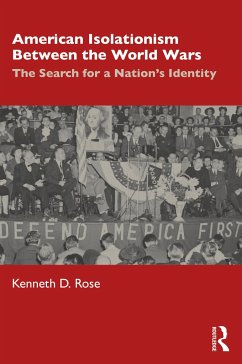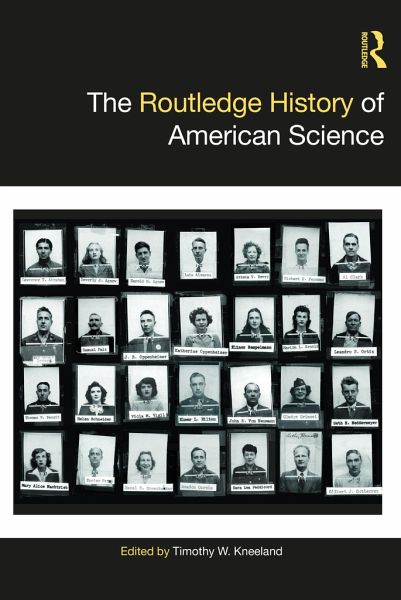
The Routledge History of American Science
Versandkostenfrei!
Versandfertig in 6-10 Tagen
218,99 €
inkl. MwSt.

PAYBACK Punkte
109 °P sammeln!
The Routledge History of American Science provides an essential companion to the most significant themes within the subject area.The field of the history of science continues to grow and expand into new areas and to adopt new theories to explain the role of science and its connections to politics, economics, religion, social structures, intellectual history, and art. This book takes North America as its focus and explores the history of science in the region both nationally and internationally with 27 chapters from a range of disciplines. Part I takes a chronological look at the history of sci...
The Routledge History of American Science provides an essential companion to the most significant themes within the subject area.
The field of the history of science continues to grow and expand into new areas and to adopt new theories to explain the role of science and its connections to politics, economics, religion, social structures, intellectual history, and art. This book takes North America as its focus and explores the history of science in the region both nationally and internationally with 27 chapters from a range of disciplines. Part I takes a chronological look at the history of science in America, from its origins in the Atlantic World, through to the American Revolution, the Civil War, the World Wars, and ending in the postmodern era. Part II discusses American science in practice, from scientists as practitioners, laboratories and field experiences, to science and religion. Part III examines the relationship between science and power. The chapters touch on the intersection of science and imperialism, environmental science in U.S. politics, as well as capitalism and science. Finally, Part IV explores how science is embedded in the culture of the United States with topics such as the growing importance of climate science, the role of scientific racism, the construction of gender, and how science and disability studies converge. The final chapter reviews the way in which society has embraced or rejected science, with reflections on the recent pandemic and what it may mean for the future of American science.
This book fills a much-needed gap in the history and historiography of American science studies and will be an invaluable guide for any student or researcher in the history of science in America.
The field of the history of science continues to grow and expand into new areas and to adopt new theories to explain the role of science and its connections to politics, economics, religion, social structures, intellectual history, and art. This book takes North America as its focus and explores the history of science in the region both nationally and internationally with 27 chapters from a range of disciplines. Part I takes a chronological look at the history of science in America, from its origins in the Atlantic World, through to the American Revolution, the Civil War, the World Wars, and ending in the postmodern era. Part II discusses American science in practice, from scientists as practitioners, laboratories and field experiences, to science and religion. Part III examines the relationship between science and power. The chapters touch on the intersection of science and imperialism, environmental science in U.S. politics, as well as capitalism and science. Finally, Part IV explores how science is embedded in the culture of the United States with topics such as the growing importance of climate science, the role of scientific racism, the construction of gender, and how science and disability studies converge. The final chapter reviews the way in which society has embraced or rejected science, with reflections on the recent pandemic and what it may mean for the future of American science.
This book fills a much-needed gap in the history and historiography of American science studies and will be an invaluable guide for any student or researcher in the history of science in America.



